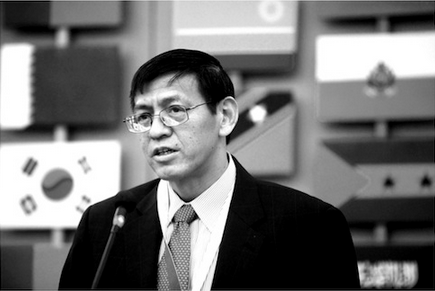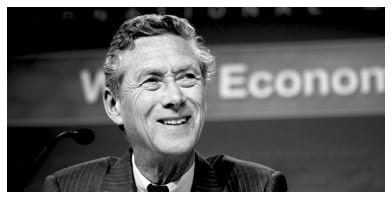by Daniel C. Esty (Yale Law School) and Steve Charnovitz (George Washington University)
Month: March 2013
Driving Restrictions That Work? Quito’s Pico y Placa Program
by Paul Carrillo (co-author Arun Malik and Jiseon Yoo (IIEP and GWU)
Sanctuary Markets and Antidumping: An Empirical Analysis of U.S. Exporters
How Well Does Core Inflation Capture Permanent Price Changes?
March 2013
by Michael D. Bradley (Department of Economics, GWU), Dennis W. Jansen Department of Economics (Texas A and M University), and Tara M. Sinclair (GWU)
Are Sunday Babies Doomed for Life? Measuring the Sunday-Born Achievement Gap in Ecuador
March 2013
by Gabriela Aparicio (co-author Paul E. Carrillo (GWU) and M. Shahe Emran (IPD, Columbia University)
Maurice Obstfeld
Friday, March 29, 2013
11:30am to 2:00pm
The George Washington University
Washington, DC 20052
View the PowerPoint here
Fixed Costs, Network Effects, and the International Diffusion Of Containerization
Tuesday, March 26, 2013
The George Washington University
Washington, DC 20052
Who is Bashing Whom? China, Cyber-attack, Democracy, and Retaliation
Moderator: Dr. Susan Ariel Aaronson
A luncheon forum: March 22, GWU, 12-2
Elliott School Commons, 6th fl, 1957 E Street, NW
Visit the conference website here.
Elliott School of International Affairs
Lindner Commons, 6th floor
1957 E Street NW
Washington, DC 20052
About the Event
On January 31, The New York Times, America’s paper of record, made front page news. Several months after it published several articles delineating the financial holdings of the families of Chinese leaders, the Times reported that the Chinese military had hacked into its computers, inserted malware and stolen its employees’ e-mail account passwords. Soon thereafter, The Wall Street Journal, Washington Post, Bloomberg, Voice of America and other media outlets publicly claimed their computers were also allegedly hacked by Chinese citizens.
Many Americans were outraged and expressed concerns about the importance of cyber-security for the fourth estate, which must protect the privacy of sources, ensure freedom of the press, and play such an important role in American democracy. But the incidents also raised questions of governance. How should the US respond to such cyber-attacks when it too is attacking? Congressman Mike Rodgers, Chair of the House Intelligence Committee, called for retaliation. However, retaliation is unlikely to build greater support for shared international cyber norms.
The event, organized by the Trade and Internet Governance Project of GWU, and the Minerva Initiative of the Department of Defense, examined the hacking from several different perspectives: cyber-security, economics, trade, human rights, and global governance.
Speakers:
Ellen Nakashima, The Washington Post
Dr. Irving Lachow, Director, Technology and Security, Center for a New American Security
Delphine Halgand, Washington Office Director, Reporters without Borders
Grady Summers, Vice President of Mandiant Security
Michael Nelson, Bloomberg Government
The Global Food Challenge
Monday, April 23, 2018
5:30 to 7:00pm – Reception to Follow
Elliott School of International Affairs
Lindner Commons, 6th floor
1957 E Street NW
Washington, DC 20052

This forum will be based on the global food challenge:
- How can we feed 9 billion people while reducing agriculture’s environmental footprint?
- What will it take to finally eradicate hunger?
- What are the most urgent research priorities on this subject?
Sustainable Development is emerging as the defining challenge of our generation, and it will critically require a new kind of interaction between policy and research. The Sustainable Development Forum, a series of talks by leaders in academia and in policy, will attempt to map the research agenda for sustainable development following the Rio +20 conference. What will sustainable development entail? What are the most crucial questions we need to be asking? How should academia go about searching for answers that will actually inform real action and policy changes?
The State of the World Economy
Olivier Blanchard
Chief Economist of the International Monetary Fund
Co-sponsored by the George Washington University Department of Economics
View the presentation in pdf here.
Thursday, March 7, 2013
6:30 to 8:00pm – Reception to Follow
Harry Harding Auditorium
1957 E St., NW, Room 213
Elliott School of International Affairs
George Washington University
Washington, DC
The Institute for International Economic Policy and the George Washington University Department of Economics are proud to present Olivier Blanchard, Chief Economist of the International Monetary Fund, to present a policy address regarding current issues in international financial policy. Dr. Blanchard is also a professor of economics at his alma mater, the Massachusetts Institute of Technology. He is a macroeconomist who has worked on a wide variety of issues including, the role of monetary policy, the nature of speculative bubbles, the nature of the labor market and the determinants of unemployment, and transition in former communist countries. He is a fellow and Council member of the Econometric Society, a past vice president of the American Economic Association, and a member of the American Academy of the Sciences.

Richard Hornbeck (Harvard)
March 5, 2013
